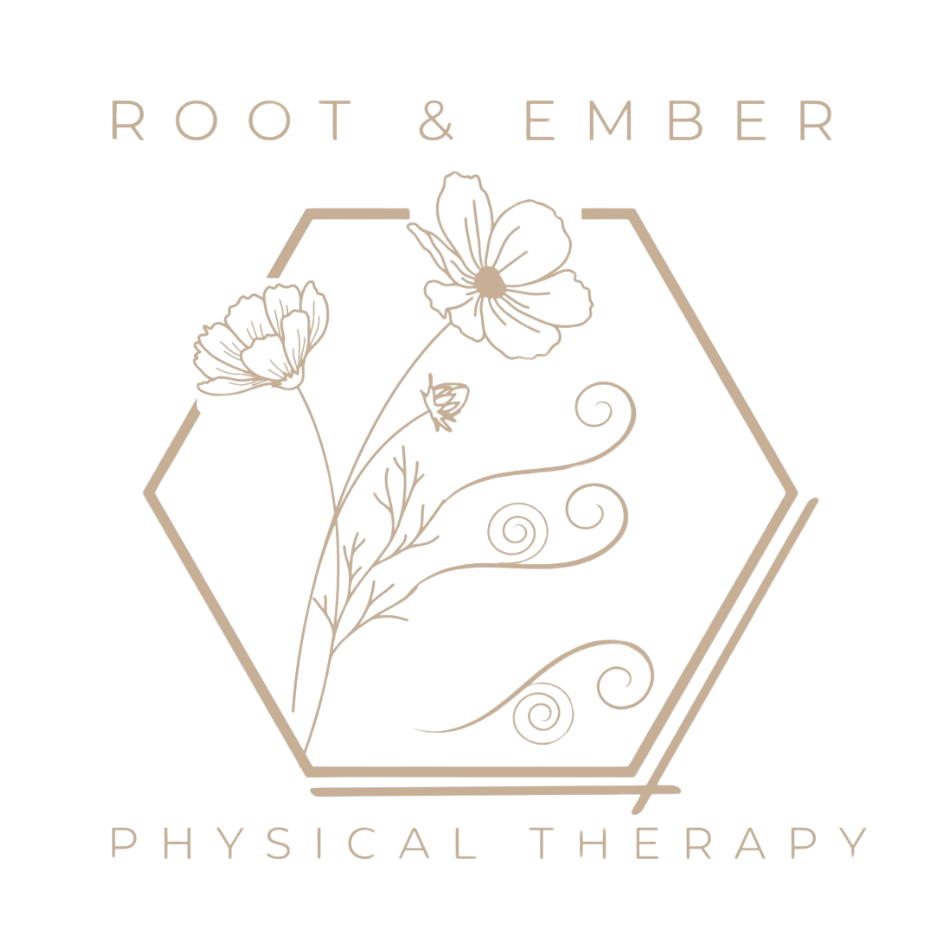Our Approach
You know you want to feel better—but it’s hard to know where to start. I help you discover what your body needs and guide you toward lasting relief, improved movement, and confidence in your body.
I combine physical therapy expertise with a nervous-system-informed approach to notice how your body is healing naturally, where it’s experiencing limitations, and guide you toward the interventions that can aid most. I focus on truly listening and putting the full picture together, so every plan is tailored to you and your goals.
Our
SERVICES
-
Whole-body orthopedic and pelvic floor care for strength, mobility, and ease
Rachael Gossett, PT, DPT, SEP, PCES offers physical therapy that considers the body as an interconnected system. With advanced training in both orthopedic and pelvic floor therapy, she looks at how movement, strength, breath, and support patterns influence one another—not just the area where symptoms show up.
Pelvic floor care is woven into this whole-body perspective. Rachael assesses how the diaphragm, abdominal wall, hip mobility, spinal mechanics, and even foot and ankle stability contribute to pelvic symptoms. This helps clients understand why issues like leakage, heaviness, pain, or core instability may arise, and how to retrain the system so that support and ease can feel more natural.
Treatment blends skilled manual therapy with individualized movement strategies: strengthening, mobility work, breath mechanics, postural re-education, motor control retraining, and—when desired—functional dry needling. Each session is designed to help the body find more ease, coordination, and confidence.
People often choose this approach when they want:
pelvic floor therapy that integrates the whole body
support during pregnancy or postpartum healing
help with symptoms such as leakage, diastasis, prolapse-related discomfort, or painful intercourse
targeted treatment for orthopedic pain or new injuries
clear, functional strengthening and mobility work
practical guidance for returning to movement and daily activities
Many clients also find that combining this work with nervous-system–informed sessions deepens their healing—building strength on top of new patterns of support, breath, and ease.
-
Restoring the foundations of movement through embodiment, awareness, and gentle recalibration
Nervous system–focused physical therapy recognizes that movement begins long before a muscle strengthens or a joint mobilizes—it begins with the nervous system. When the body has been under strain, stress, or overwhelm, it often relies on protective patterns that shape breath, posture, muscle tone, and the ability to access coordinated movement.
This approach works at that foundational level. Sessions begin with embodiment—helping you reconnect with areas of the body that feel distant, guarded, or difficult to sense. Through gentle, precise touch and slow, mindful movement, Rachael supports the development of proprioceptive awareness and interoception, allowing your system to feel safer, more organized, and more available for change.
As involuntary protective mechanisms soften, clients often discover new access to breath, reflexive core support, pelvic floor coordination, easeful postures, and movement patterns that were previously out of reach. This creates a stable foundation for strength, mobility, and functional capacity to build naturally and sustainably.
Rather than pushing the body, this work listens for the subtle cues that reveal how tension, bracing, or disconnect have shaped movement over time. By following the body’s pacing and signals, the system can reorganize itself from the inside out.
People often choose this approach when they’re experiencing:
pelvic floor tension, guarding, or pain that doesn’t respond to typical exercises
difficulty accessing certain muscles or regions (core, pelvic floor, glutes, deep stabilizers)
chronic or persistent tension patterns with no clear structural cause
breath-holding, bracing, or difficulty coordinating breath and movement
a sense of disconnection from parts of the body, especially after childbirth or stressful events
movement or postural habits that keep returning despite strengthening or manual therapy
Many clients blend this work with traditional PT, allowing new patterns of awareness, coordination, and ease to take root before adding more volitional strengthening or mobility training.
Curious to learn more about us of SE™ in physical therapy? Check out this blog post.
-
With Rachael Gossett, PT, DPT, SEP, PCES
Functional Dry Needling (FDN) is a hands-on technique used by trained physical therapists to support neuromuscular re-education and optimal movement. By inserting a very thin needle into specific muscles or regions, FDN helps reset dysfunctional communication between the nervous system and the muscles—improving coordination, mobility, and control. This tool is used to restore proper motor firing patterns, reduce protective muscle guarding or overactivity as well as to improve proprioceptive input (your body's awareness of movement and position). FDN is applied with the goal to re-establish efficient, pain-free movement and can be a powerful catalyst for change, especially when paired with movement retraining, breathing work, and other therapeutic exercises.
Rachael has her Level 2 Functional Dry Needling certificate through Kinetacore. Dry needling services are included in the initial consultation and follow up visits.
Rachael also offers 20 minute “FDN Tune Up” services: If you are a current client, have already done FDN with Rachael, and consistently complete your home exercise program, you can schedule a FDN only visit. This is a 20 minute session for dry needling only. It does not include any consultation on movement interventions or manual therapy technique. This approach tends to work best for people who generally have their symptoms managed but occasionally have an exacerbation. For people who are highly motivated to do their home exercises outside of the clinic and are looking for a helpful reset. For those who already know your body responds great to FDN.
-
With Rachael Gossett, PT, DPT, SEP, PCES
As a Pregnancy and Postpartum Exercise Corrective Specialist (PCES), Rachael supports individuals through safe and effective movement during pregnancy and postpartum recovery.
Labor Mechanics Training: 50 minute birth preparation session: learn exercises that you can do to prepare for labor as well as positions to perform during both stage 1 and stage 2 of labor. Get confirmation that your pelvic floor is able to relax sufficiently as well as optimize your pushing mechanics for reducing risk of perineal tearing and difficult deliveries.
Postpartum Physical Therapy: Rachael has a particular passion in helping women who have experienced difficult or traumatic deliveries to reconnect with and find trust in their bodies again. To strengthen and get back to activities that they love and what brings them joy. When working with Rachael, women have the opportunity to find greater regulation in their nervous system, which can enhance their capacity to bond with their babies. Most women benefit from traditional pelvic floor physical therapy and SE™ bodywork during this time period (see above).
CONDTIONS
TREATED
-
Acute and chronic pain (any location in the body)
Pain along the pelvic girdle, groin, vulva, or vagina
Coccydynia (tailbone pain); rectal spasms or pain
Upper or lower back pain (with or without sciatica)
Hip girdle discomfort
Interstitial cystitis (bladder pain)
Dyspareunia (painful sexual activity); vaginismus
Dysmenorrhea (painful periods)
Neck pain, Headaches, Temporomandibular Disorder (TMD) Pain (jaw pain)
Thoracic Outlet Syndrome (TOS); Nerve pain in the arms or hands
-
Autonomic dysregulation following a traumatic or stressful event
Prolonged recovery after difficult and/or traumatic childbirth
Aftereffects of medical procedures and/or surgeries
Chronic pain following motor vehicle collisions, falls, or injuries
Difficulty regulating nervous system during pregnancy
Difficulty with body awareness (interoception, neuroception, or proprioception)
Bracing and guarding patterns due to chronic stress or unresolved trauma
Breath-holding or dysfunctional breathing associated with anxiety, trauma, or chronic pain
Hyperarousal or freeze responses that interfere with sexual activity or pleasure
-
Stress incontinence (leakage with coughing, sneezing, etc.)
Urinary leakage with recreational activity or sports
Urge urinary incontinence; nocturia
Fecal incontinence; smearing
Constipation; IBS; painful or difficult voiding
Pelvic Organ Prolapse (cystocele, rectocele, etc.)
Diastasis Recti Abdominis (DRA)
Generalized lumbopelvic weakness
Post-op recovery (Cesarean or abdominal surgery)
-
Endometriosis; Chronic Pelvic Pain; Dysmenorrhea
Fibromyalgia
Central Sensitization
Hypermobility; EDS
Chronic Constipation; IBS
Complex Regional Pain Syndrome
Persistent Post-Concussive Symptoms; Whiplash-Associated Disorder



